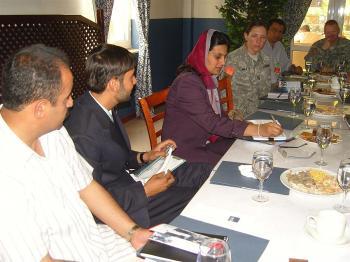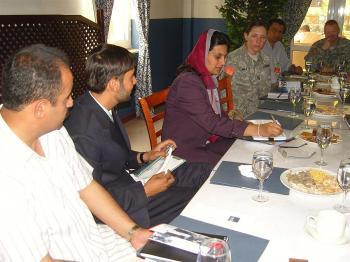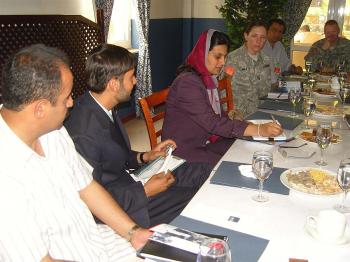According to a March report on press freedom in Afghanistan, the number of women training to be journalists there has sharply declined during the seven-year tenure of President Hamid Karzai. The report, issued by Reporters Without Borders (RSF), says that in the past few years, the percentage of female journalism students in Herat, Afghanistan, has dropped from 70 percent to 30 percent.
“They have the same problems as male journalists but stronger,” said Vincent Brossel, RSF’s Asia director. “Some of them have been threatened by the Taliban and extremists because they are women.”
Brossel spent a week visiting several cities in Afghanistan and interviewing government officials, journalists and advocacy groups. He said the situation for journalists in the conservative Islamic state has deteriorated, and women specifically are sometimes targeted.
For many female Afghan journalists, the pressure and dangers present too great of a risk. According to RSF, in the past seven years, several dozen female journalists have switched from reporting to administrative jobs, or quit the profession altogether.






